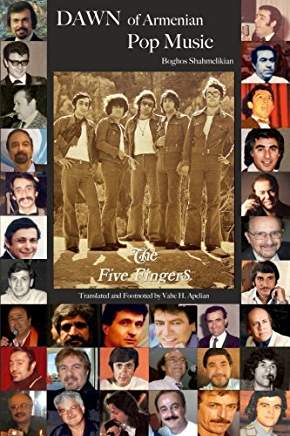An expert from Boghos Shahmelikian's book "Dawn of Armenian Pop Music" I translated. Vahe H. Apelian
"Shortly after Adiss Harmandarian’s phenomenal rise, Levon Katerjian produced a number of records that also became very popular but with older audiences. Levon Katerjian formerly sang as soloist in choirs. If remnants of Turkish music had remained in the community, Levon Katerjian helped to eradicate them. The ensuing onslaught of Armenian songs by Adiss and Levon completely changed the landscape of Armenian pop music and ushered it away from its Ottoman influences.
Adiss interpreted mostly estradayin (pop) songs instead of ashoughayin (folk) songs. Levon, on the other hand, interpreted more of the latter than the former. In spite of their different and distinct singing styles, the emergence of these two talented popular singers around the same time gave way to an Adiss and Levon competition.
The beneficiary of their artistic competition became the Armenian pop music and the public, although at times it became amusing. Both brought their services to the community by singing at community fund raising events free of charge. Among such fundraising events I note the one that the Sardarabad Gomideh of the Armenian Revolutionary Federation (ARF) had organized in Bourj Hammoud, in the Kermanig Hall (1) that can accommodate up to 2000 persons.
The hall was filled to capacity to hear the two prominent singers. The concert was held mid-week at 9 p.m. It was scheduled to end by 11 p.m. Each singer was to perform for one hour.
After much debate Levon relented and agreed to appear on stage first. It was commonly understood that a concert ended with the more popular musician performing last. The implied message of the order of their appearances was obvious, if not to the audience, but to the performing artists.
Levon, instead of ending his songs in one hour, continued to sing past the 11th hour time slot, well into past midnight. By the time Adiss came on stage most of the audience had already left the hall to get to sleep for their next day’s routine. Adiss thus ended up singing a few songs to an almost empty hall!
Levon is a Syrian national. He faced difficulty in obtaining visa to travel abroad because of some travel restrictions. He felt imprisoned and remained restless. While in Beirut, he sang in the Sayat Nova Restaurant and during summers mostly in the Samaha Restauratn in Bois De Bologne (2). Eventually he secured permission to travel abroad. He also received offers from the Armenian communities world wid. Traditional Armenian musical instruments accompanied Levon. The director of his band was the noted Kanoon player Michael Sakayan, Hampig Jabourian played clarinet. Levon’s brother who played Armenian drum (dhol) had difficulty travelling abroad and thus could not accompany Levon. Instead of him Joseph Gemayel, whose mother was Armenian played the drum.
Catholicos Aram I also recognized the contribution of Levon Katerjian fo reviving the Armenian ashoughayin (folk) songs and popularizing Armenian music and bestowed upon him as well the order of Saint Mesrob Mashdots in 2005, in Los Angeles.
Adiss and Levon changed the prevailing psychology of the Armenian singers who short while earlier had not wanted to sing in Armenian and had adopted for themselves western artistic names. These singers made a complete reversal. Harout Hoppourian who had adopted King Arthur for his stage name became Haro Pourian. Koko Baghdadlian had adopted Paul the Prince as his stage name became Paul Baghdadlian. Harout Panossian had adopted Maxim as his stage name, became Maxim Panossian. Adiss Harmandian who had adopted Adiss Harmand as his artistic name became Adiss Harmandian. Along with helping cleanse Armenian popular music of Turkish influences, they reverted to their roots as well. "
Levon Katerjian passed away on July 1, 2022."
1. Kermanig Hall is named after the one-time city Marash in the Ottoman Empire that was largely inhabited by Armenians.
2. A summer resort on Mount Lebanon.



No comments:
Post a Comment